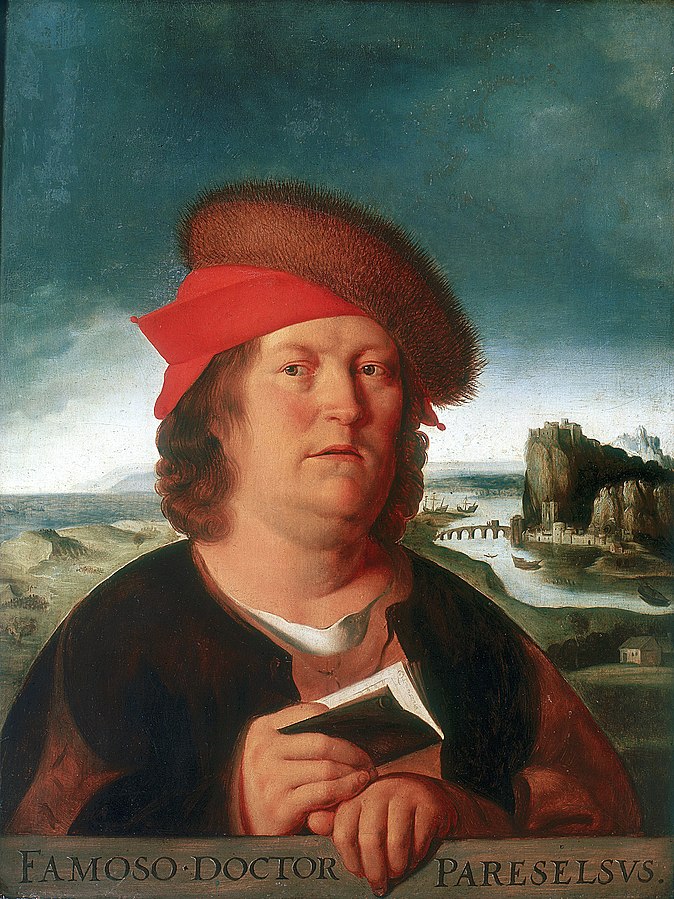I Am the Freak Priest: Reflections on Eclectic Spirituality, the Metacrisis, and the Power of Popular Culture

Photo courtesy Ryan Loughlin
To put it succinctly: I am an elder zoomer, of the post-“god-is-dead” generation; I am the Freak Priest. A world without God has proven itself to be not only totally boring, but a damn near total void–and not in the dark-mother-worshipping-goddess-cults-of-the-ancient-world kind of way. No, this void is not interested in the birthing of the new—only the destruction of the old, and anything else that does not submit to its insatiable desire for total domination. I must admit that it is much easier to deal with this void when you’re labelled as a depressed person—and yet, how cruel! How cruel is it to not only build a world whose sole purpose is to imprison and enslave the spirit of nature, but to blame those who respond to this reality with a grief so pure, it marries the bones to their resting place?

Photo courtesy TheMIS Photography
I’m not the first to make the declaration that mental illness is, in part, a flawed concept in a society that perpetuates the purported illness on a mass scale. Emphasizing the importance of an individual’s responsibility for their own wellness is beyond evil. Foucault makes the argument that those who we deem to be mentally ill today are the shamans of yesteryear. Jungian analyst Jerome Bernstein calls them “borderland personalities.” I just call it being human. Human. It’s not something I would have chosen. I always fancied myself a magical girl, or a precocious orphan, like the ones I would read about during math class instead of listening to the lectures. Existing at all was something that deeply puzzled me; existing as a regular human was something that deeply bothered me.
What good was a world without dragons? Why not allow a select few persons the ability to transform into an animal? What was my purpose, if anything? I remember asking my mother this question. “I feel like I’ve come here to do something, but I can’t remember what it is. Do you?” Naturally, mom didn’t have an answer. From the perspective of my child self, existing with such philosophical angst so early on seemed like the setup for a bad punchline. Surely this predisposition was a sign that I had superpowers, and they were going to kick in soon. But the gospel according to adults was that I asked too many questions. I overanalyzed everything. My head was in the clouds. "Pay attention, kid."
I said things I wasn’t supposed to say. I didn’t understand why I wasn’t supposed to say them, and most times I wouldn’t get a reason if I asked. In some ways, a child is to an adult as a churchgoer is to a priest. There is a Way, and you must follow that Way, even as it stirs a tumult within you. Divergences from the Way are to be reported to the main office immediately. The consequences for being yourself very well might not be worth it; the shame game is so often shoot-to-kill. Perhaps most confusing of all is that the guidance of a priest or a parent is always in your best interest—even when it isn’t.
Humans sure do love their priests.
I don’t believe in false priests—only real ones whose messages get either lost in translation or distorted by an unhealthy ego. Alternatively, misguided prophets share messages to those who don’t need them, or who aren’t ready to hear them yet. My emotionally abusive Godmother comes to mind; talk about the Freak Priest gone awry. A brilliant soul whose unfiltered light blinded all who encountered it, she named herself for the Egyptian goddess of truth and justice–and strived to live up to the act. My memories of this part of my life are scarce, but her scent has managed to burrow into the deep layers of my unconscious, like a plantar wart. Egyptian musk still makes me nauseous.
I didn’t want to become like her. So, naturally, I became allergic to God—that is, unless they were embedded in one of my beloved fictional worlds. Though my Godmother did her best to control the way my sisters and I explored spirituality—even managing to convince my mother that watching certain television shows would inspire us to “devil worship" (1)—I found my way to the right practice, thanks to the power of popular culture.
It’s funny to think that my academic interest in esoteric spirituality started with a Japanese cartoon, but it makes perfect sense at the same time. “Fullmetal Alchemist,” an anime series based on the eponymous manga by Hiromu Arakawa, has a lot of easter eggs for those who are familiar with alchemy, a philosophical system with origins in ancient Egypt that has played a huge role in the development of what we now call natural science. I am now far more studied in the history and practices of alchemy and its sister sciences, Kabbalah and Gnosticism, than when I first came across the series. When I returned to it during a recent period of poor health and inactivity, I could see that Arakawa clearly did her research.
The in-world lore of “the Western/Eastern sage ” is clearly based on Hermes Trismegistus, the main mythic figure of the European Renaissance’s version of alchemy.(2) From carvings on doors to tattoos and national flags, everything in the show is either inspired by or directly taken from symbols used in Renaissance Alchemy. Even the name of a central character, Van Hohenheim, is a nod to the influential German physician and alchemist Paracelsus. If it weren’t for this story, I may not have made the fateful Google searches that would eventually lead me to the work of some of the greatest occult scholars in the West—Carl Jung, Rudolph Steiner, and Manly Palmer Hall, among others.

The Louvre copy of the lost portrait by Quentin Matsys, source of the iconographic tradition of "fat" Paracelsus. Public domain via Wikimedia Commons.
I was always destined to be the Freak Priest.
There was simply no way around it. I often wonder about the anime-to-religious-scholar pipeline, but to say that I owe all my interest in the esoteric arts to television is of course, a gross reduction. I was raised in an Afrocentric spiritualist household by two vegetarian artists. I certainly wasn’t going to enter the world without at least a mildly post-conformist bent. I am also of the second generation of digital natives; I wasn’t subjected to whatever was on television. I could kiss my parents’ spirituality goodbye if I was so inclined—and I was—for the internet allowed me to follow my curiosities down whatever rabbit holes my little Freak Priest heart desired. Was this an escape from the loneliness of a childhood spent clueless and fearful, thrashing about in the murky waters of the neurotypical social order? Sure. But it wasn’t entirely misguided. I figured if I knew the secret formulas of the psyche, I’d finally have a leg up on being this thing called human.
Humans. We used to be dumber in some ways, but smarter in others, and that’s hardly changed. We have the most advanced technology the world has ever seen, and we’re only getting more advanced in this regard. Our natural-scientific understanding of the world is getting richer and broader every day. We have not just models, but metamodels; not just theories, but metatheories; not just cognition, but metacognition. We also have a rapidly declining and irrevocably damaged biosphere. We have ethnocultural chaos, festering global fascism, and the mental health crisis that keeps on giving. Now’s about the time for your superpowers to kick in, if they haven’t already.
Well, what of the Freak Priest—trembling with impatience in the wings, waiting to be unleashed as a Deus Ex Machina upon the Godless world?

Photo courtesy Bee Felten-Leidel
How can there be a priest with no God? Suppose the Freak Priest is the priest of the No-God: the God that lives from absentia, like a dead father watching his children from heaven above. Or hell below, or across the street. Whatever direction, relative to whatever location. Absence is another form of presence. The No-God inspires us to say, “well, it’s not like stewardship of the Earth is a one-man job, anyway….” It never was.
That’s the illusion that killed God in the first place. Well, what of the Freak Priest—turning away from the Paradise in The Sky and toward the Church in The Dirt?
The word “freak” likely originated from a Middle English slang term for one who suddenly and frequently changes his mind. You might think that’s too much of a non-sequitur, but I can relate it pretty directly to the nature of the deity of the Renaissance Alchemists. Mercurius, a figure directly based on the Hellenistic Hermes Trismegistus, is highly changeable. He is named for the Greek trickster and messenger, after all. Think about the relationship between trickster and the modern-day meaning of freak, and the connection, hopefully, becomes more obvious.
We’ve come full circle.
This is how my mind works, in allegiance to one axiom and one alone: as above, so below. I do not ask whether or not all things are related—I only ask how. And if all things are related, of which I am arrogantly convinced, it matters not that God is dead. It matters not that lives appear to unfold in linear fashion towards a seemingly endless void. It matters not that death is, because there are no endings in this world—only changes.
This is what it means to be the Freak Priest: we cannot resurrect God, but we can become them. Like God, the Freak Priest is only one. Compositae, like the head of a daisy, and like God, it is therefore also many. For when God died—as Ouranos, as Pan Gu, as Tacutsi Nakawe—their body became the world. Their hair became the grass, their blood the rivers and streams. And all the little bugs on God’s body, those became the people. As the little bug-children of God, it’s our job to uphold their legacy. We are the little-bug alchemists, humble servants of the Church in The Dirt, shouldering the impossible task of transforming lead into gold.
The Great Work can only be started, never finished. We walk not a fresh road as the Freak Priest; we follow in the footsteps of God.
Notes
- She wasn’t wrong about the worship, but she was wrong about the devil. …But that’s a story for another time.
- This lore is in the manga and the 2009 television series, but not the 2003 television series.


